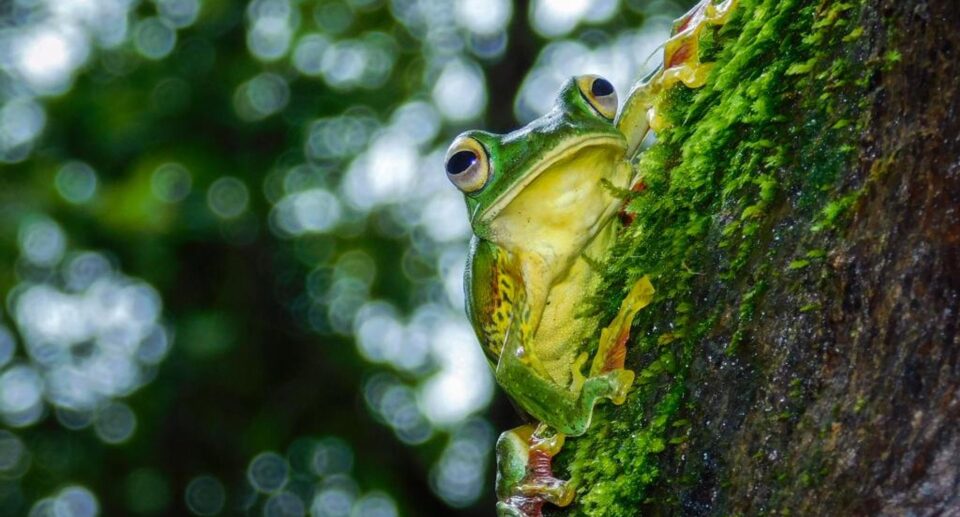The Nature Beliefs of Ugadi
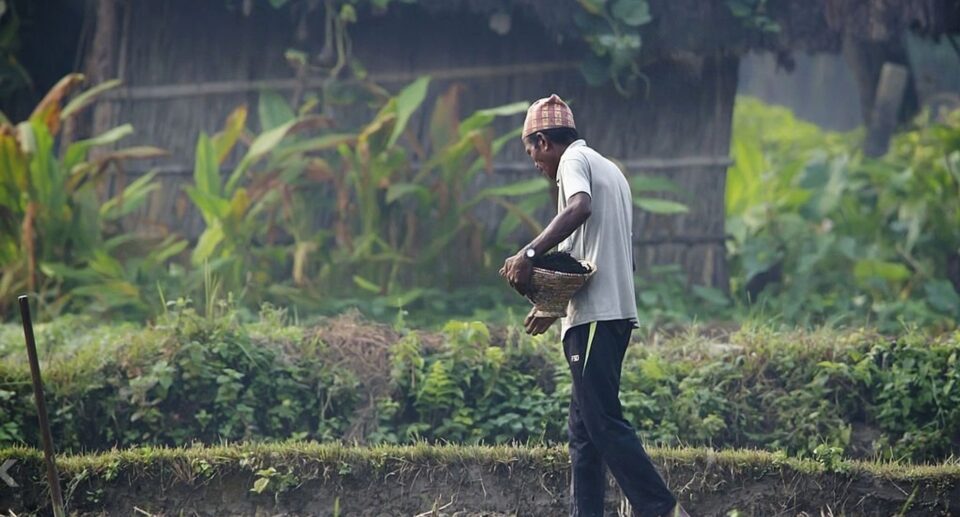
Naturenika wishes you all a very happy Ugadi! 🙂
Ugadi is a traditional festival celebrated by people of India, particularly in the states of Andhra Pradesh, Telangana, and Karnataka. It marks the beginning of the new year in the Hindu lunar calendar. That’s where it gets its name – Ugadi or Yugadi, which literally means “Start of a new Yug (Era in Sanskrit)”
On this auspicious day, I just wanted to take some time and speak about how Indian festivals such as Ugadi are so closely connected to the rhythms of nature. Our festivals connect to themes both philosophical and physical. This one in particular celebrates the cyclical nature of life, the renewal of nature, and the interdependence between humans and the natural world. During this time, the mango tree is coming into bloom, its white buds are happily heralding the arrival of spring. The whole energy is changing, within and without, and it is incredible to have a pause of some kind, such as a festival to remind us of these things. The pause helps us stabilize ourselves.
Arrival of the Koel
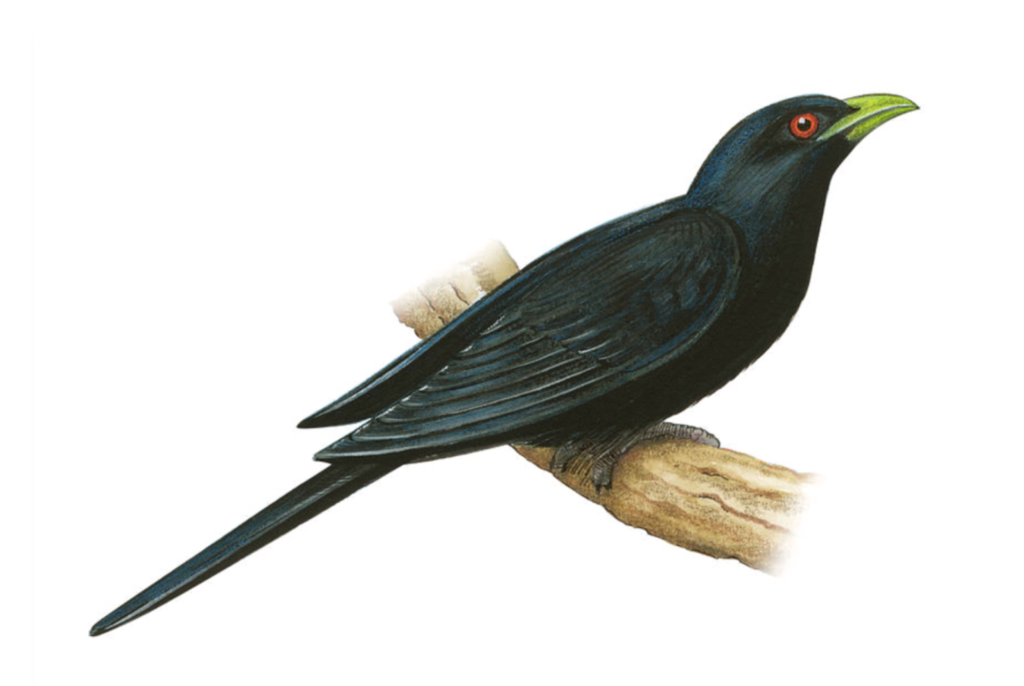
Astrologers believe that nature gives us signs to inform us of the beginning of a great year ahead. One of the signs is the song of the cuckoo bird or the Asian Koel. My colleague Prakruthi Subramaniya told me about the connection between Ugadi and the Koel. As you might know, the arrival of spring also marks the arrival of birds that feed on the sweet gifts of mother nature. New leaves begin to grow on trees, flowers begin to bloom and it is the start of the mango season in India. The Koel comes and eats the flowers of the mango tree and it is believed that in its happiness, it starts singing beautifully. The song of the Koel indicates the advent of the Ugadi festival.
The Mango Leaf Thoran
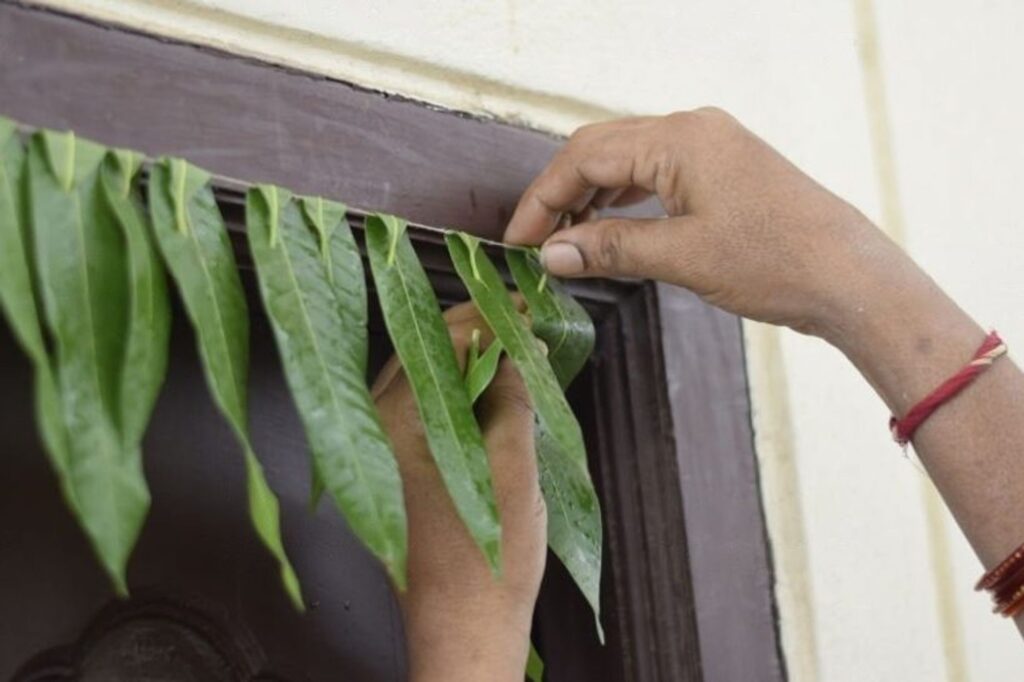
You would notice people collecting the leaves and flowers of the mango tree during this time. Why would they do it? They are making a ‘Thoran’, which is basically fresh green mango leaves strung together to decorate the front door. People clean their houses and decorate the main entrance, doors and windows with the mango leaves to receive the blessings of Ganesha. According to a mythical legend stating that Lord Ganesh, god of wealth and prosperity, is fond of mango leaves, this tradition signifies good harvest and good health. The people visit temples to seek divine blessings for health, wealth, success and prosperity in the New Year.
Bevu Bella
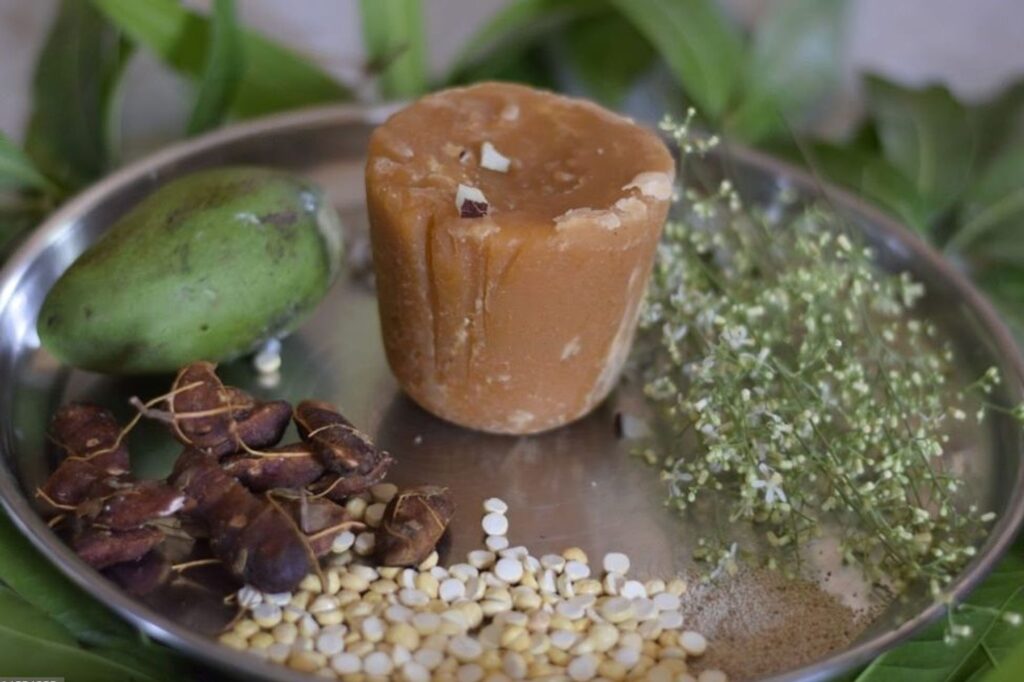
Another tradition that struck me as being very special and symbolic is the consumption of Bevu Bella in Karnataka during Ugadi. Bevu Bella is a traditional dish which is a mixture of two different tastes: “bevu” meaning bitter and “bella” meaning sweet. The dish is typically prepared by combining two ingredients – neem leaves and jaggery. Neem leaves are known for their bitter taste and are considered to have medicinal properties. Jaggery, on the other hand, is a sweetener made from sugarcane and is considered to be healthier than sugar. The combination of neem leaves and jaggery in Bevu Bella is symbolic of the ups and downs of life – the bitter and sweet moments that we experience. The dish represents the belief that life is a combination of both good and bad, and that we should learn to accept and appreciate both. During the festival of Ugadi, it is a common practice to consume a spoonful of Bevu Bella before starting any new activity or venture. This is believed to bring good luck and help individuals stay grounded in their approach to life.
Agriculture & Ugadi
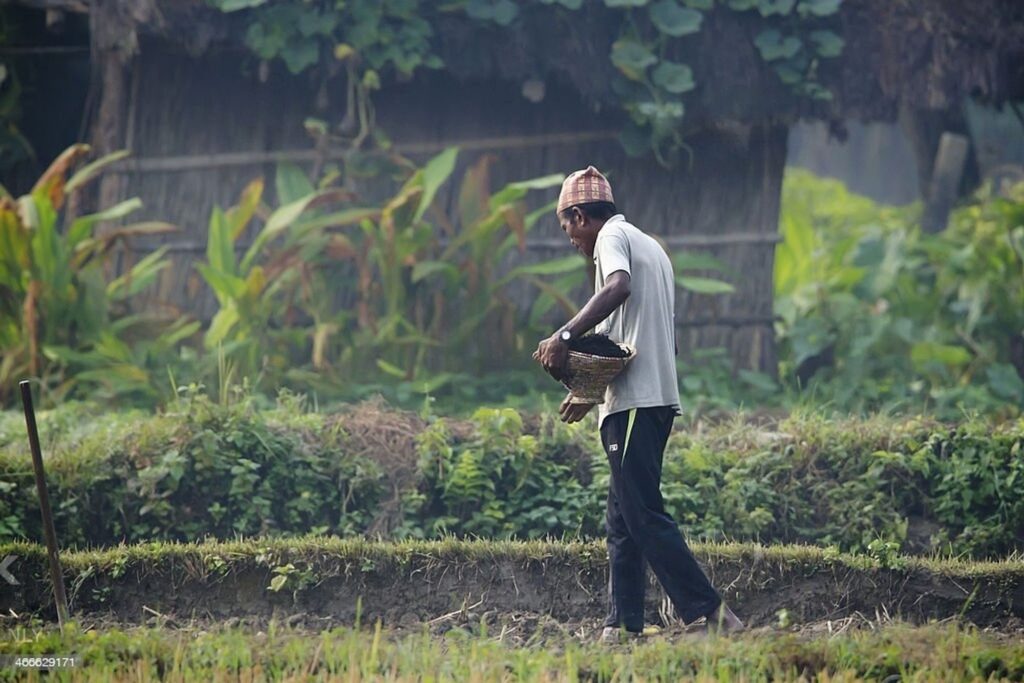
The festival of Ugadi is closely associated with agriculture and the harvest season. It marks the start of the sowing season, and farmers perform rituals to seek blessings for a bountiful harvest. During the festival, farmers offer prayers and puja to various deities associated with agriculture and seek their blessings for a good harvest. They also perform rituals such as plowing the fields and sowing seeds, which are believed to bring good luck and ensure a fruitful harvest. Farmers also decorate their cattle with flowers and perform puja to them, as they are considered to be important partners in agriculture. The festival of Ugadi is also a time when farmers exchange agricultural tools and seeds with each other, as a sign of goodwill and solidarity.
Hope you have a splendid festival time. Let us know how you’re celebrating with your family in the comments!
All images taken from iStock.
To get updates about nature resources and future walks, just plug in to our social media channels :
Naturenika
https://www.instagram.com/naturenika/https://www.facebook.com/Naturenika
The Naturalist School
https://www.instagram.com/naturalist.school/https://www.facebook.com/naturalistsch

